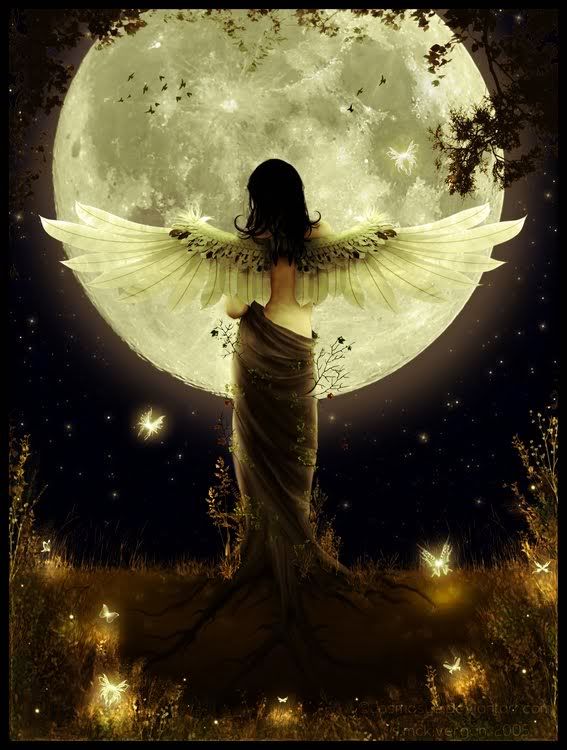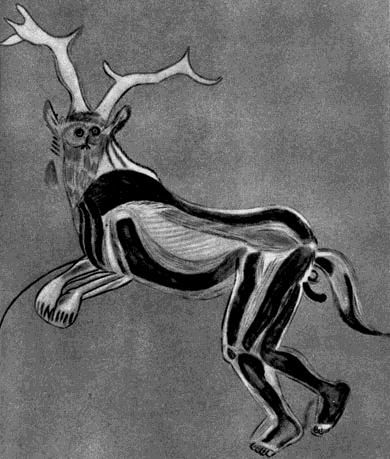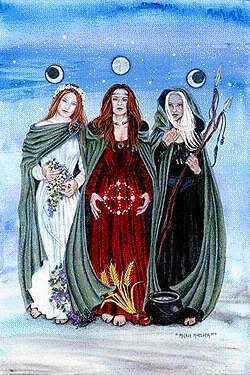Often I mix the perspectives of specifically "our culture" (Cisalpine, Lombardian, and Camunian) with larger concepts of which we are a part. I made that decision based on the types of issues covered here. This entry is no exception. Anyway, this intentionally open and slight double-speak can't always be helped. The Euganei were, I believe, an Alpine people who were akin to a much larger ancient proto-European stock. By ancient, I mean tens of thousands of years ago. So long ago... before the ancestors of what we know to be the Norse, Mediterranean, Celtic. Slavic, and perhaps other stocks--all of which were later to become Indo-Europeans--had even migrated westward into Europe.
Therefore, the ancient Camunni were a tribe of Euganei, who where themselves part of this Alpine-proto-European stock. The ancient Basques are another example of this stock. Modern survivals of what may have been the first Europeans. In the same way as there were various tribes--some Alpine, some Gaulish--in pre-Roman Cisalpine Gaul; there were also, in Gaul itself, the very same dynamic of Gaulish and Alpine tribes. This ancient social dynamic may have existed all over Europe between the proto-Europeans and the newcomers (Gauls, Norse, Mediterraneans, etc.). Little is known about this proto-European Alpine stock...... however...... they left us with one big reminder of their culture...... the "Old Religion."
Just to backtrack for a moment. The English author Margaret Baillie-Saunders had written about a type of Norse spirituality which existed even prior to the Norse clans arriving into Europe. She placed them approximately in the region now known as Iran, probably during the last ice age about 20,000 years ago. I am aware that I may step on a few toes here. A number of prominent Odinists make statements such as "Odinism was the religion of our Northern European ancestors going back 40,000 years." In reality, a number of sub-stocks--who later, collectively, were to become "Indo-Europeans"--lived all around Europe, North Africa, the Middle East, and Eurasia. This, of course, was a totally different world than what we know today. I think that the ancient world is far more exotic and beautiful than we can even imagine. It was also a very harsh world. I am just using this very ancient Norse item as just one example of this.
This "old religion" interacted, either in a positive or negative way, with the polytheistic spiritual traditions and mythologies of the incoming sub-races--mentioned above--in very ancient times. It appears that they were generally blended into these pagan traditions. I may be stepping out on a limb here, but sometimes I almost get the impression that some of these reconstructionists don't quite know what to do with these mildly out-of-place "old religion" spiritual traditions present within these various polytheistic religions. They seem marginally "out of place." I will avoid further controversy, for now, by not mentioning what those somewhat out-of-step traditions are.
 So what is the "old religion?" Although there isn't a genuine folkish name for it that I know of, we can get clues by the spiritual elements which have survived: the Horned God or horned deity, the Triple Goddess or triple deity, the Witches Sabbath, European witchcraft, or witchcraft, the Wheel of the Year, the Mother goddess, or proto-Indo-European religion. Personally, I think that Stregheria from central and southern Italy is probably a good source of clues, as well as in some areas of Wicca, usually Celtic Wicca. I recall watching one woman of Stregheria on a YouTube video, which was actually from an older cable tv program, who was amazed as to the many similarities between Stregheria and Celtic Wicca. Well, these ancient traditions were very widespread. In fact, Stregheria is also known as "La Vecchia Religione"... the old religion. Modern Wicca should have been the reconstructionism of the "old religion," but it simply wasn't. It's a broken thing which cannot be fixed. It's hopelessly mixed with paganism from all over the world, and many have tried to prop it up as some sort of modern political front. If anything, a return to the old religion would be "radical traditionalism," as opposed to some universal aspiration. However, a sizable number of Wiccans could be led into the folkish/traditionalist camp. Who knows, perhaps even a few "Goths" as well.
So what is the "old religion?" Although there isn't a genuine folkish name for it that I know of, we can get clues by the spiritual elements which have survived: the Horned God or horned deity, the Triple Goddess or triple deity, the Witches Sabbath, European witchcraft, or witchcraft, the Wheel of the Year, the Mother goddess, or proto-Indo-European religion. Personally, I think that Stregheria from central and southern Italy is probably a good source of clues, as well as in some areas of Wicca, usually Celtic Wicca. I recall watching one woman of Stregheria on a YouTube video, which was actually from an older cable tv program, who was amazed as to the many similarities between Stregheria and Celtic Wicca. Well, these ancient traditions were very widespread. In fact, Stregheria is also known as "La Vecchia Religione"... the old religion. Modern Wicca should have been the reconstructionism of the "old religion," but it simply wasn't. It's a broken thing which cannot be fixed. It's hopelessly mixed with paganism from all over the world, and many have tried to prop it up as some sort of modern political front. If anything, a return to the old religion would be "radical traditionalism," as opposed to some universal aspiration. However, a sizable number of Wiccans could be led into the folkish/traditionalist camp. Who knows, perhaps even a few "Goths" as well.
The most incredible thing about the "old religion" is its historical resilience. It has survived the arrival of all of those polytheist faiths in ancient times; it has survived the literal assault of Christianity and the witch trials in the Early Modern period on both sides of the ocean; and it has survived history itself from our most remote roots. Now, the final hurdle. It must overcome Wiccan-style universalism and modern politics in order to return as a viable, folk-minded, non-political way of life. There is one positive unintended consequence to the promotion of Wicca/eclectic witchcraft by many in high places. They have, despite some unwarranted harm to the old religion's credibility, provided an opportunity by simply smashing the gates. Today, radical folk-traditionalists can also walk through those gates and establish themselves. Look at Hunter Yoder. One man can do a lot, even without help from people in high places. Right now is our chance. All we have to do as native believers is TAKE back our own folk tradition from the pretenders.
They can be overcome, not by antagonism, but simply by outwitting them. The most important step is to not be "anti-Christian." Christian aggression took place a long time ago. In fact, it may perhaps be more pragmatic to take somewhat of a pro-Christian stance. If a jerk does show themselves, use creative arguments. For example, if they make mention of "human sacrifice," which actually took place globally in every locale; then bring up the human sacrifices which were conducted by early Christian sects, and they did take place. However, that is only when confronted with an aggressive person. Personally, I don't even see any reason that a Christian couldn't still believe in a folk tradition from their own remote roots; in the same way that the Greeks or Gaels have done. Everything doesn't have to be a fight. Yes, you can be a Christian and still partake in folk traditions. In fact, you do not have to view this as a "religion" at all.
The most important thing is to establish our own ethics, and not always be influenced by the controversies and contrived drama of others. Something which is a "problem" or "issue" with them, does not have to be an issue at all for us. There are bad people in all religions, including pagan ones. I think I will just end it here, rather than go on about what I believe that we are and aren't. In a nutshell, I think it's pretty safe to say that what we would be aiming for would be something entirely non-political. It might be something which could, in some ways, resemble Asatru. In some ways, Asatru is like standing on top of a mountain under the sun, while the old religion is like standing in a forest clearing under the moonlight. Darker symbolism, but not a dark heart. Asatru is more like masculine spiritual energy; while the old religion is more like feminine spiritual energy. No malevolence. That was propaganda all along, from Christian supremacists and Satanists.
**************************************************
3-31-12 ADDITION: I wanted to add a few more items to this. First, I had put some links to areas which served as clues to this ancient proto-European people and culture. I should have included "the Sorcerer," an antlered-man image found in a cavern called 'The Sanctuary' in France, which may be an early artifact reflecting a Cernic-type god; Cernunnos, which may have been adopted into Gaulish spirituality when the two sub-races came into contact; "Herne the Hunter," an English legend of an antlered-man spirit; and "the Green Man" legend and the "Jack in the green" celebration are a tie-in this this concept, but beyond that it becomes more merged into other spiritual traditions.
What we are looking at is something which goes very deep into the ancient world. Back to Cro-Magon hunter-gatherers who literally defeated another strong species, the Neanderthals, for primacy over Europe. There seems to be a direct link between the horned god legend and the tradition of the Witches Sabbath, over a very long period of time. The "Wiccan concept" should have been something designed to develop over time, rather than allow someone to step in and establish the terms from the get-go.
Although ignored by the American press, there is currently a dig in Bulgaria which hopes to unearth an utterly massive area of what appears to be five pyramids. These structures are so old that they appear as mere mountains at first glance. However, they are being exposed as man-made structures. These are not "mounds" or "carved hills." They could be tens of thousands of years old, and could change everything we know about ancient civilization. This would also tie right into what we are looking at here regarding a proto-European "Alpine race" and their spiritual traditions.
**************************************************
 |
| "The Sorcerer" from 13,000 BC |
What we are looking at is something which goes very deep into the ancient world. Back to Cro-Magon hunter-gatherers who literally defeated another strong species, the Neanderthals, for primacy over Europe. There seems to be a direct link between the horned god legend and the tradition of the Witches Sabbath, over a very long period of time. The "Wiccan concept" should have been something designed to develop over time, rather than allow someone to step in and establish the terms from the get-go.
Although ignored by the American press, there is currently a dig in Bulgaria which hopes to unearth an utterly massive area of what appears to be five pyramids. These structures are so old that they appear as mere mountains at first glance. However, they are being exposed as man-made structures. These are not "mounds" or "carved hills." They could be tens of thousands of years old, and could change everything we know about ancient civilization. This would also tie right into what we are looking at here regarding a proto-European "Alpine race" and their spiritual traditions.


No comments:
Post a Comment